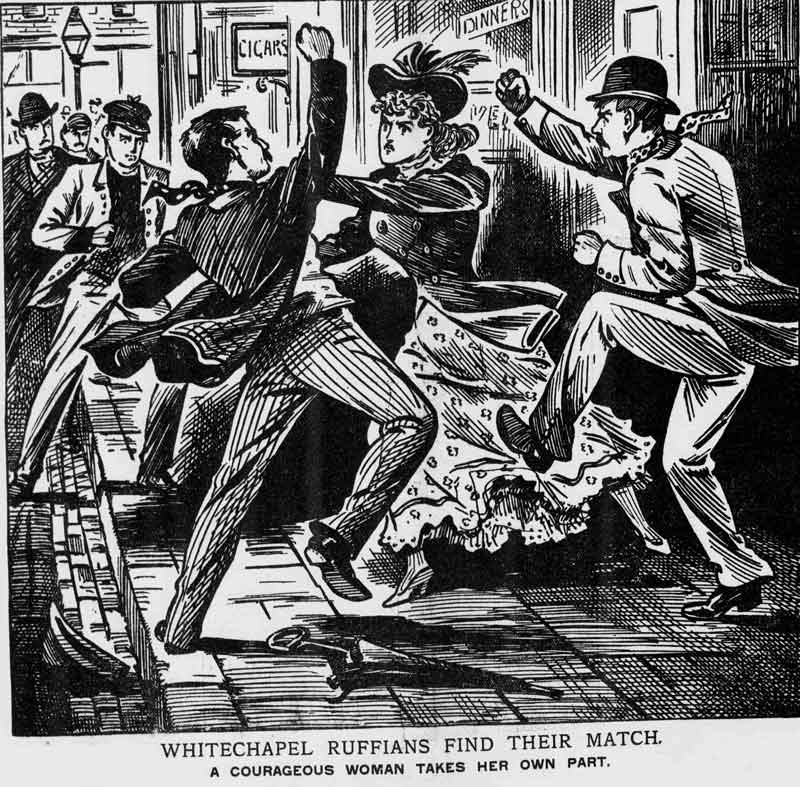In the closing years of the 19th century, London was plagued by an outbreak of street hooliganism and street robberies that proved an extremely worrying trend to many people.
The gangs and ruffians of London really did prove a massive problem, and restoring order to the streets was discussed extensively in the newspapers of the day.
The Bellshill Speaker, in its edition of Saturday 16th September 1899, published an opinion piece which looked at the problem and proposed a possible solution to it.:-
A DISGRACE TO LONDON
Charles Lamb said of London that he was “in love with the sweet security of the streets.” Either Lamb must have possessed more than his share of sunny optimism, or else the condition of the London streets has changed very much for the worse since his time.
The busy traffic, combined with the narrowness of many of the principal streets, makes the streets of London one of the most insecure places in the world, and to this danger must be added the frequent outrages which take place in broad daylight in the most crowded streets.
These crimes, for which a parallel can only be found in the brigannage of semi-civilised States, appear to increase rather than to diminish in number and daring, and are now probably a daily occurrence.
ROBBERY OF A JUDGE
Only the other day one of the Masters of the High Court of Justice was the victim of one of these robberies in the neighbourhood of the Strand, and some hope was entertained that the incident would have the effect of drawing attention to these outrages.
KILLED BY ROBBERS
A trifling addition was made to the force of plain clothes policemen, and the subject passed from the public mind until one day last week, when an elderly gentleman, who had been set upon in Caledonian Road by a gang of thieves, died from the effects of the injuries which he had received.
The mode of operation in this case was of the usual kind – one ruffian struck the victim and snatched his watch and chain, while the others got in his way to prevent him from following the first thief. On this occasion they seem to have used a little more violence than usual, although they are never very particular in that respect, and the result has been a charge of manslaughter.
Of course, it is not manslaughter, the case being clearly murder or nothing, but the fact that only the lesser crime was alleged is typical of the general tendency which is extended to persons guilty of such offences.

IS THERE A REMEDY?
As to the remedy, there is nothing new to be said, and nothing new to be tried. Punishment should be swift, adequate, and as certain as it is possible to make it.
At present, the police have very little chance of capturing the offenders, who have only to watch the uniformed constable out of the way and then to commit the robbery in the neighbourhood of some court which offers facilities for escape.
When an offender is caught he should invariably receive the only kind of punishment which he dreads.
HARSHER SENTENCES
It is to be feared that the lenient punishment inflicted in former days at the Central Criminal Court and in the present at the London Sessions has had the effect of encouraging these outrages.
If the number of plain clothes policemen were trebled, and every prisoner had to go before Mr Justice Day, the highway robberies which now disgrace London would speedily cease.
To add to the police would, of course, involve expense, but surely that would be a lesser evil than the comparative immunity which perpetrators of these crimes enjoy.
